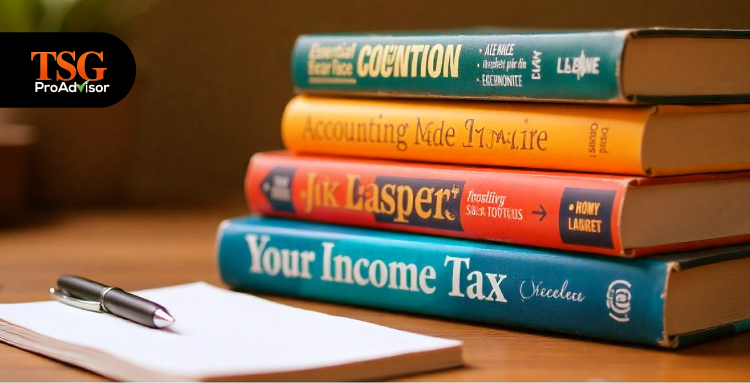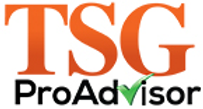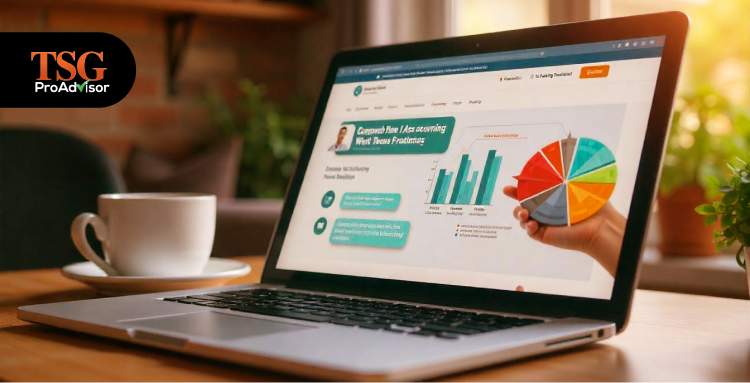Let’s be honest—tax and accounting can feel like a foreign language. Whether you’re a freelancer trying to sort out deductions, a small business owner juggling expenses, or just someone who wants to take control of their finances, learning the basics can seem overwhelming. However, the good news is, that you don’t need a degree in accounting to get started.
With the right resources, self-learning is not only possible—it’s easier than you think. Let’s walk you through some of the best resources available, and ways to build your knowledge at your own pace in handling taxes and accounting.
I) Free & Trusted Learning Platforms
The internet is packed with resources to help you master tax and accounting—but not all of them are reliable. To save you the headache of sorting through endless options, here are some of the best free and trustworthy platforms that make learning easier.
 1. IRS.gov – Straight from the Source
1. IRS.gov – Straight from the Source
If you want accurate, up-to-date tax information, why not go straight to the experts? The IRS website offers free resources, including tax guides, FAQs, and interactive tools that break down complex tax rules. Their Small Business and Self-Employed Tax Center is especially useful if you’re running a business or working as a freelancer. Plus, they regularly update their materials, so you’re always getting the latest tax laws—not outdated advice.
2. Khan Academy & AccountingCoach – Accounting Made Simple
Numbers don’t have to be intimidating. Khan Academy turns accounting into bite-sized, easy-to-follow lessons, covering everything from debits and credits to financial statements—all for free. Meanwhile, AccountingCoach is perfect for beginners who want step-by-step explanations of bookkeeping and accounting principles. It even includes free quizzes to test your understanding!
3. Coursera & edX – University-Level Courses at No Cost
Want to learn from top universities without the tuition bill? Platforms like Coursera and edX offer free courses from institutions like Harvard, Wharton, and the University of Illinois, covering everything from financial accounting to tax principles. While some courses charge for a certificate, you can access the lessons for free by choosing the audit option which is a great way to learn from world-class instructors without spending a dime.
II) Recommended Learning Materials (Books, Podcasts & Tools)
 Learning tax and accounting isn’t just about reading dry textbooks or memorizing tax codes. You need the right mix of resources that keep things practical, engaging, and easy to apply. Whether you prefer flipping through a good book, listening to expert insights on the go, or getting hands-on with real-world tools, here’s what can help:
Learning tax and accounting isn’t just about reading dry textbooks or memorizing tax codes. You need the right mix of resources that keep things practical, engaging, and easy to apply. Whether you prefer flipping through a good book, listening to expert insights on the go, or getting hands-on with real-world tools, here’s what can help:
1) Must-Read Books for Beginners
- If you’re looking for a no-fluff introduction to accounting, this book is a great place to start. It breaks down key concepts like financial statements, balance sheets, and income taxes without overwhelming jargon. Here’s such a recommendation: Accounting Made Simple by Mike Piper
- J.K. Lasser’s Your Income Tax – Updated yearly, this is your go-to guide for understanding personal tax rules, deductions, and credits so you can file with confidence.
- Tax-Free Wealth by Tom Wheelwright, a perfect resource if you want to learn how to legally minimize your taxes and keep more of your earnings.
2) Podcasts & YouTube Channels That Make Learning Easy
-
For YouTube, You Can Explore:
- Accounting Stuff: Simple, engaging explanations of bookkeeping, tax basics, and financial reports.
- CPA Strength: Covers practical accounting tips with an energetic and down-to-earth approach.
- IRS YouTube Channel: Direct from the source, this channel offers updates on tax laws, filing tips, and FAQs.
-
Podcasts That You May Explore:
- The Accounting Best Practices Podcast: Quick, insightful episodes on real-world accounting strategies.
- The Journal of Accountancy Podcast: Ideal for those who want deep dives into financial trends and tax planning.
3) Hands-on learning with Software & Tools
Reading and listening are important, but putting what you learn into practice is where the true value lies. These tools allow you to apply your knowledge in real-world scenarios like bookkeeping, tax filing, and financial management:
- QuickBooks & Wave: Quickbook and Wave, both are user-friendly accounting software that help you practice tracking income, expenses, and financial reports. Wave even offers a free version, making it great for beginners.
- TaxAct & TurboTax Academy – If you want to learn how to file taxes like a pro, these platforms, TaxAct and Turbo Tax Academy provide step-by-step tax prep simulations, helping you understand the filing process without the risk of making costly mistakes.
No matter how you prefer to learn, these books, podcasts, and tools ensure that tax and accounting don’t have to be confusing or dull.
III) Final Tips for Self-Learners
 Starting the journey on tax and accounting independently is a great step. To make the most of your learning and set yourself up for success, here are some key strategies to keep in mind:
Starting the journey on tax and accounting independently is a great step. To make the most of your learning and set yourself up for success, here are some key strategies to keep in mind:
1. Set Clear Goals and Apply Real-World Examples
Define specific objectives for your learning path. For instance, aim to understand the fundamentals of bookkeeping within a month or understand the tax deductions that apply to your situation Applying these concepts to real-life scenarios, such as managing your finances or assisting a friend’s small business, can solidify your understanding and make the learning process more engaging.
2. Engage with Online Communities for Support and Mentorship
While self-study is valuable, connecting with others can provide diverse perspectives and solutions to complex problems. Platforms like Reddit host communities such as r/Accounting and r/tax, where members discuss various topics, share resources, and offer advice. Participating in these forums allows you to ask questions, share experiences, and learn from professionals and fellow learners alike.
3. Stay Updated with Evolving Tax Laws and Accounting Standards
The domain of tax regulations and accounting principles is continually changing. To remain informed:
- IRS Resources: The IRS Understanding Taxes Program offers comprehensive materials to help you grasp current tax laws and procedures.
- Professional Courses: The American Institute of CPAs (AICPA) provides a range of courses and updates on the latest developments in accounting standards. Keeping an eye on these authoritative sources ensures you receive timely information and insights.
4. Seek Professional Guidance When Necessary
There may be instances where self-study isn’t sufficient, especially when dealing with complex tax situations or intricate accounting issues. In such cases, consulting with a certified professional can provide clarity and prevent potential pitfalls. Additionally, consider exploring mentorship opportunities through professional networks or local business associations, where experienced individuals can offer guidance and share valuable experiences.
Start Your Learning Journey with TSG Pro Advisor
Learning tax and accounting on your own doesn’t have to be overwhelming; the right resources and expert guidance make all the difference. Whether you prefer books, online courses, or hands-on software, the key is to start with a method that fits your learning style and build your knowledge step by step.
TSG Pro Advisor, we offer round-the-clock access to cutting-edge courses, expert-led mentorship, and a community of like-minded professionals. Our Business Mentorship Program connects you with industry veterans who’ve been in your shoes, offering guidance tailored to your career or business needs. Whether you’re diving into tax regulations, bookkeeping essentials, or even scaling your business, we ensure you stay ahead of the curve with constantly updated, high-quality learning materials.
Explore TSG Pro Advisor today and connect with us. Have questions or a favorite learning resource? Drop a comment and let’s keep the conversation going.


